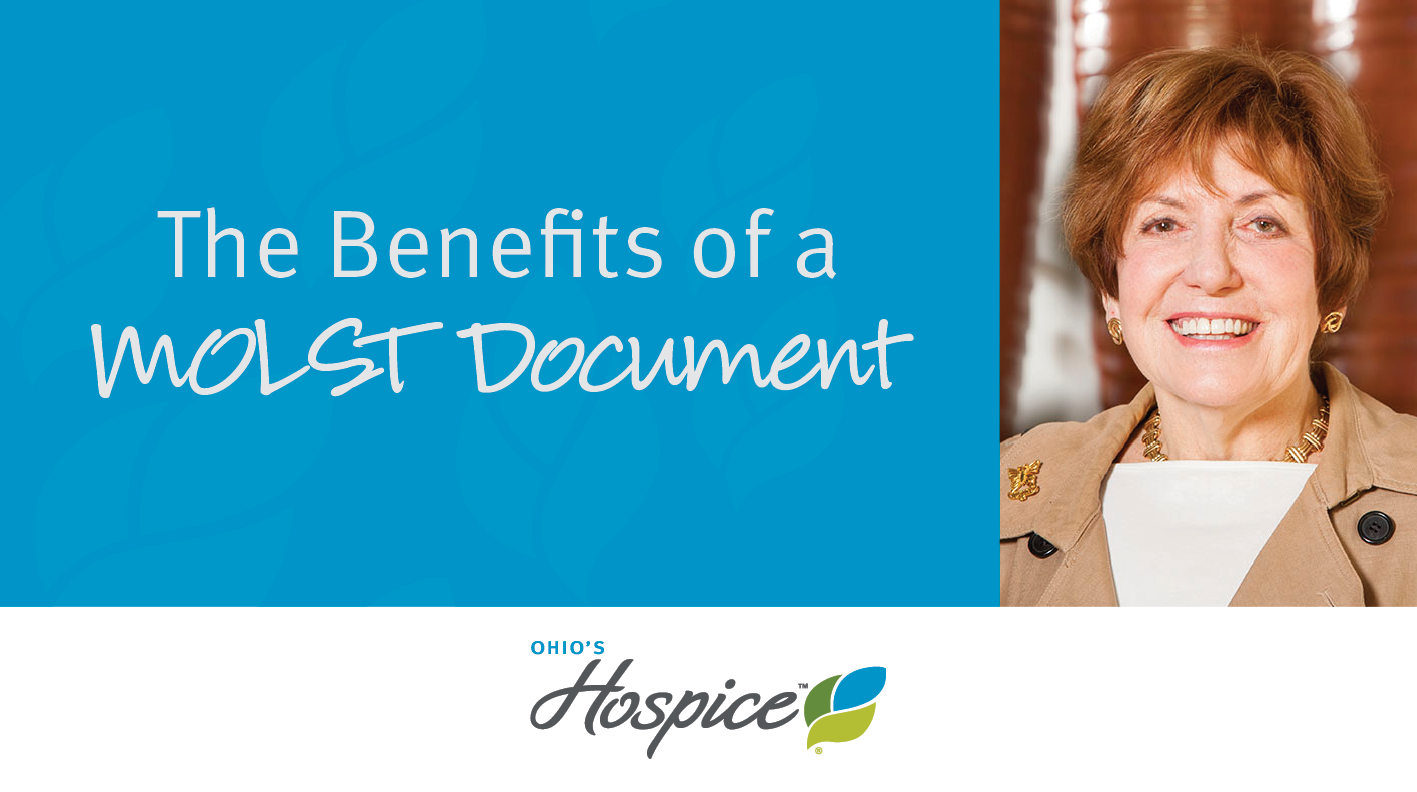
The Benefits of a MOLST Document
By: Dr. Cleanne Cass
As a palliative care and hospice physician, I have seen husbands, wives, children, and friends of patients struggle to make the right decisions about the kind of health care to obtain for their loved ones. They are often not sure what choices to make—yet they must make them, under the most devastating of circumstances. Their turmoil is heartbreaking, and they may worry for years afterward whether they have made the right decisions.
This difficult process of decision-making can be divisive for families and takes away valuable time from the process of closure—time that could be spent sharing precious moments with the patient. Indeed, disagreements about health care can divide families and damage loving relationships.
What is a MOLST?
Medical Orders for Life Sustaining Treatment (MOLST) is state legislation that is being considered in Ohio and may have a significant impact on the process of making decisions during hospice care. MOLST goes beyond an Advance Directive, which is a statement of the health care you wish to receive when you are seriously ill and can no longer speak for yourself. When signed by the physician or advanced practice nurse, the MOLST will essentially be a patient’s guide concerning their care.
MOLST vs. DNR
The MOLST form is discussed and completed by you and your doctor or an advanced practice nurse. Ohio’s current Do Not Resuscitate/Comfort Care (DNR) law permits patients to refuse or receive cardiopulmonary resuscitation if the heart stops beating or the patient stops breathing. However, current law does not address the many other care choices that patients and their families often need to consider during more stressful healthcare situations.
MOLST allows you to choose options for care including whether or not to receive CPR, to take antibiotics, or to refuse artificial hydration and nutrition. You can also choose under what circumstances you would want said options and other choices.
A final gift to our loved ones
The MOLST is not for everyone. It is intended for individuals with serious illness or frailty. Still, it may prove helpful to have a conversation with your doctor about MOLST, as it raises questions we should all consider and discuss with both our families and our health care providers. The MOLST is always voluntary and can be changed. It must be re-signed annually, and it should be reviewed and updated when any changes in your health status occur.
A MOLST document benefits your loved ones because it clearly states, in advance, what course of action you would request in critical situations. The document allows your family to stand together confidently, knowing that they are not required to make ultimate decisions for you. With a MOLST in place, your family can say, “We are not making the decisions for Dad (or Mom). We are only doing exactly what he (or she) has asked us to do.”
Ultimately, a MOLST is a final gift—one that only we can give to our loved ones.
More information about MOLST and similar POLST proposals can be found here: www.polst.org

